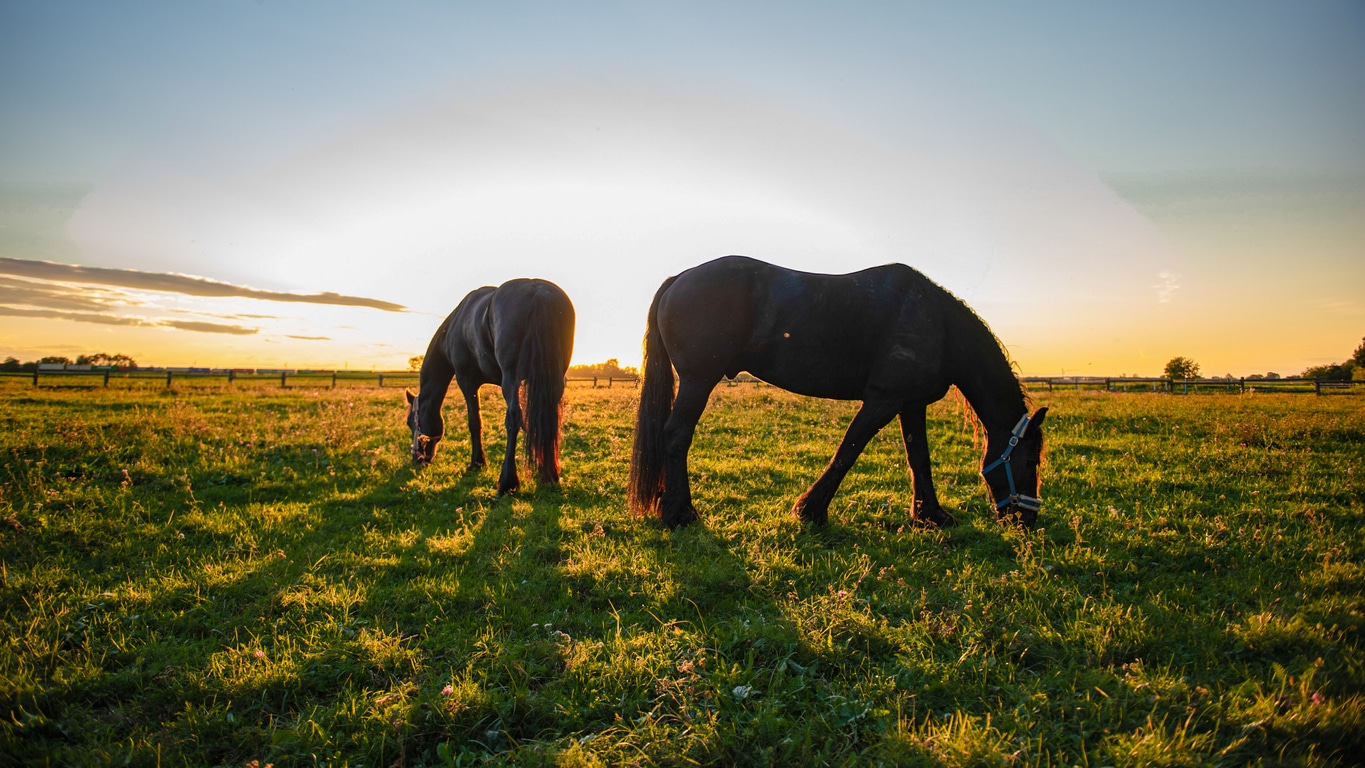Upon arriving at The Meadows, many patients are charmed by the view of equine activities at nearby ranches. They frequently ask about having Equine Assisted Psychotherapy (EAP) as part of their primary treatment program. As a direct result of these requests, EAP is among the newest offerings coming to The Meadows.
The initial challenge was finding a provider who was knowledgeable about both EAP and The Meadows’ unique model of treatment. Molly Cook, LCSW, LISAC, has experience as a family and primary counselor at The Meadows, as well as at other addiction treatment centers; she also has been trained in EAP by the Equine Assisted Growth and Learning Association (EAGALA). Working around horses since she was a teen, Molly has significant experience using EAP in her private practice. She now blends her EAGALA training and her experience with The Meadows’ model into effective therapeutic sessions.
Equine Assisted Psychotherapy supports patients in recognizing the life patterns that create obstacles for them. By incorporating horses, EAP allows individuals to experience how those patterns play out with someone other than family or friends. Participants learn how to relate to others – and their own addictions – by interacting with horses. Horses are dynamic and living beings who have fixed roles within their herd, much like the roles in a family or group of friends.
When humans are introduced to horses, they are incorporated into the horse herd and its social structure. In this joining, the horses start to recognize and reflect the unspoken emotions of humans, demonstrating exactly what human body language tells them. In this demonstration lie metaphors and lessons about the patients that can facilitate change. A healing bond encourages recognition and change in behaviors. Because of the intimacy that can develop between humans and horses, positive results can start immediately.
For example, a recent patient was struggling with her role as a victim due to childhood traumas. By interacting with the horses, she was able to recognize her previous reality about herself and see that she was precious in her own right. Her role as a victim disempowered her; as she experienced EAP and gained more self-knowledge, her new confidence and skills enabled her to begin to see her own power. She was able to set boundaries, express her needs, share her feelings, and face her fears and anxieties – all without her previous coping mechanisms. Through interaction with horses, she gained the confidence necessary to use these new tools in her life. She gained a sense of self-trust and continues to use her newfound skills to build the self-assurance needed to face the issues of day-to-day life.
During treatment, new coping skills are taught to patients who need new ways to deal with past trauma and addictions. In EAP, these new coping skills are demonstrated, practiced, and reinforced. This experiential modality allows patients to utilize the knowledge gained at The Meadows. It then provides the opportunity to apply the tools learned in treatment to real-life situations. In addition, patients who are struggling with releasing old behaviors, ideas, patterns, and thoughts can be challenged with a new therapeutic technique that mirrors the reactions of those around the patient.
The size of the horses allows patients an opportunity to overcome fear and develop confidence. While interacting with horses, patients have the ability to integrate boundary work and reinforce coping skills, such as expressing their needs or asking for help. They also develop intimacy with those around them. Patients who are resistant to letting go of old patterns or ideas can utilize EAP models to see the lack of control their old ideas bring into their lives. In treatment, patients gain information and knowledge. However, without practice, patients may not be able to make the necessary changes. EAP allows patients to enhance their new knowledge with experience that helps to solidify personal changes.
Equine Assisted Psychotherapy is an experiential, interactive, hands-on mode of therapy that can help patients see any issues that have been blocking progress in treatment. With the dynamic medium of equine assistants, patients can see which ideas work and which don’t.
Anyone can participate in Equine Assisted Psychotherapy; no prior horse or riding experience is necessary. It is completely safe; no riding is involved, and all activities are done on the ground under the supervision of equine professionals.

